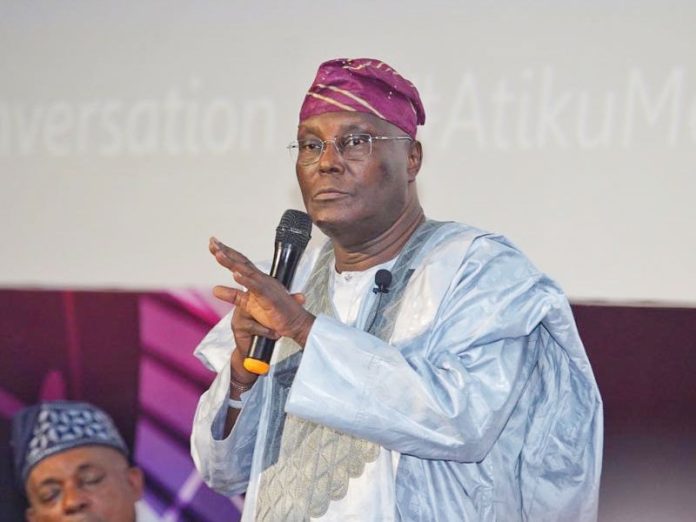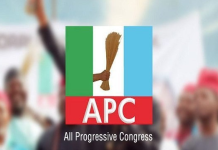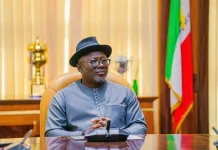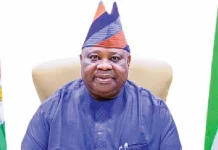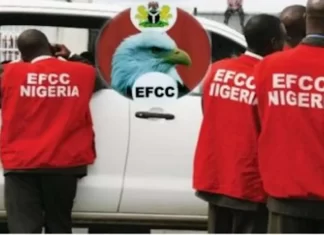I had always been an avid supporter of Atiku even before the charismatic former vice president of Nigeria and presidential flagbearer of the Peoples’ Democratic Party (PDP) won the nomination as the party’s candidate for the February 25, 2023, election. I was asked to serve as the Senior Resource Person for a non-governmental organization (NGO) for a six-week assignment in a “Situation Room,” or “SR,” in April of last year. Our task was to spend five hours a day creating scenarios for the two major political parties’ presidential primaries, the PDP and the All Progressives Congress (APC). I informed the conveners I was an inappropriate participant from the first meeting. “Unapologetically Atiku,” I am. I cried out to be let out of the project. Surprisingly,I was restrained by the organisers, who thought my aggregate experiences would enrich discourse and disputation.
We sat at a conference table every day before a whiteboard, the lead discussant for the day holding a marker, drawing conjectures from one senatorial zone to another; one state to another; and one “sub-zone” to another. Sub-zones, yes. Godswill Akpabio, as governor of Akwa Ibom State in 2012, hosted me on a few occasions in the course of official assignments. In one of our engagements, he drew my attention to this critical stratum of the nation’s geopolitical superstructure. He espoused that in most instances, states which were birthed by brother states, seemed to follow the political and attitudinal footsteps of their older “brother states.”
Every sitting included tea, coffee, biscuits, finger foods, and a full lunch, and we also occasionally splurged on respectable wines and passable cognac. Our research’s realities consistently and strongly pointed in the direction of Atiku Abubakar’s victory. Even though this reality was the result of my previous, personal, and numerous rigorous interrogations, I refused to reiterate it or take pride in it. You are aware of the type of humility displayed by football players when they score in a game while playing against their parent club. They don’t celebrate by jumping and punching the sky. It is history that Atiku eventually prevailed in the PDP primary and is now the party’s nominee for president. After that, he ran an issue-based campaign with a polite tone and avoided using abusive language, winning converts in their millions.
Due to my promotion of Atiku, I have been banned from a number of sociocultural and professional social media platforms. People often wonder how I, a Fulani man and an entirely Yoruba man, are connected. Unfairly referred to as a “northerner,” I am a Yoruba man who is strangely grouped with non-contiguous cultures and ethnicities in the northernmost parts of Yoruba country. I recall being labelled a “Fulani slave,” by a much younger professional colleague, a sworn Bola Tinubu demagogue, on an alumni chat group. I must admit that social media is a curious leveller.
A very good friend of mine with whom I shared the same classrooms, lecture halls and hostels in the university over 40 years ago, called me the other day from Lagos. He had a copy of The Guardian of Friday, February 10, 2023 with him and had just read my article: Atiku, El Rufai, Udenta And The Vindiction Of Esu Odara on the backpage. He availed me a long lecture about the impracticability in Nigeria of a Fulani successor to Muhammadu Buhari after all that Nigerians, especially non-Fulani Nigerians, have suffered under Buhari’s watch. Everything he spoke about: appointments, siting of infrastructures, political patronage and business opportunities, are issues I’ve consistently addressed in many of my media engagements.
Read Also: Breaking: Buhari orders CBN to resume the recirculation of the old N200 note
“Tinubu is not the most ideal president Nigeria needs right now, but we need him nonetheless,” he said. He informed me that APC flagbearer would most probably continue with his known penchant for the self-centred empowerment and enrichment of his family and associates. He used the tax collection giant Alpha Beta as an illustration, which has helped the APC strongman maintain his multibillionaire status. He also mentioned a commercial product that had been launched in Lagos in 2002, probably when Tinubu’s more famous son was still in secondary school, but which the young man now completely controls in the public realm of the megacity. He wouldn’t be surprised if oil licences are freely appropriated to the family and cronies of a Tinubu president. So what exactly is the grouse about a prospective Atiku Abubakar presidency?
My friend declared, “It is morally wrong.” He continued, “Atiku shouldn’t have announced his candidacy for president.” “It is the turn of the south which is why I’m rooting for Tinubu.” Before engaging him in discussion, I patiently listened to his points of view. “Why do you think it is morally right for the south west to produce one if you are so in love with a southern presidency at this time?” I quizzed him. “Hasn’t the south west held the presidency before? The departing vice president isn’t he from the same zone? Do you not believe that over the past 24 years, we Yorubas have had our fair share of presences in Aso Villa? Have you thought about the serial out-muscling of the north east from the nation’s political scheme? Or which south are you talking about?” We battled ourselves in a telephone conversation which spanned almost an hour.
Atiku is unnecessarily demonised on account of his primal sociocultural origins which he had absolutely no role in determining. He is a kinsman of Buhari whose better forgotten nepotistic, mean-spirited and bigoted rule has profiled his compatriots of the same ethnographic origins. But haven’t twin children born by the same mother, minutes between one another, manifested extreme opposite, if not discordant attitudinal peculiarities? Atiku’s adversaries have evidently rammed themselves into a cul-de-sac with respect to all manner of unsubstantiated innuendos, labels, and name tags they’ve sought to hang around his neck. They are thus foraging for extraneous issues to impugn his political profile which is on the ascendancy.
Point is Tinubu and his choir who picked Buhari up and cleaned him after his earlier three “lule-ings” to adapt the Tinubu expression, did insufficient due diligence on their product before foisting him on Nigerians. His most uninspiring performance profile which he has remorselessly described as “doing his best,” is misconstrued and misapplied as the operational manual of every other Fulani person who aspires to high office. Buhari apparently conned his benefactors by his initial pretensions as a “born again democrat,” even as his promoters forgot that the same Buhari sounded the death knell of Nigeria’s Second Republic, December 31, 1983. Stereotyping anybody from any ethnic background on account of the misconduct of his kinsmen is against my thought, principles and beliefs. It is unfair and most untenable. Atiku must be assessed, understood and appreciated on account of the specific sterling strengths and impeccable qualities he brings to the table.
After the traumatic years under Buhari, Nigeria urgently needs a pacifist, a unifier, and a restorer. Our various strands of national cohesion have been shredded on multiple levels. After the overall ruination of the Buhari years, we require an immediate and effective economic recovery initiator. Regardless of his language or origins, we should be focused on the advantages a potential president can offer and how quickly, positively, and significantly he can affect the country. Atiku has a variety of advantages and attributes. He carries a wealth of in-depth knowledge from both the public and private sectors. He adheres rigidly to the law and supports employment and female emancipation as the engines of the economy. He offers the clearest and most practicable pathway for Nigeria’s “rescue,” (coincidentally the abbreviation of the key words of his manifesto); recovery and rediscovery.
Over two decades ago, Atiku established the “National Development Project,” (NDP), steered by Usman Bugaje, a pharmacist, scholar and public intellectual. The organisation discreetly surfed for brains and brilliant minds who could add substantial quality to governance and national development, moving forward. This was even as Atiku fixed his gaze on a future role as chief helmsman of Nigeria. He has therefore most adequately prepared himself for the task ahead. The next time people pose the question: Who are those Atiku Abubakar has headhunted or groomed for national service? I will refer them to Nasir El-Rufai, governor of Kaduna State; Chukwuma Soludo, his Anambra State counterpart and Bonnie Haruna who was chief executive of Adamawa State. I will refer them to Emeka Ihedioha who was Atiku’s aide during his first term as vice president, before his upward climb as deputy speaker, House of Representatives and later, governor of Imo State.
Read Also: Federal Govt approves contracts for N26bn in electricity conductors, transformers
I’ll tell them that Atiku’s first family doctor in Adamawa State before Atiku introduced him to Obasanjo was Olusegun Ajuwon, a skilled medical professional who would go on to become Obasanjo’s primary personal physician. Ajuwon worked his way up to become the National Hospital in Abuja’s chief medical director (CMD). Jide Adeniji, an engineer who spent decades living in Adamawa State and working in the civil service, was appointed the first managing director of the Federal Roads Maintenance Agency (FERMA) on Atiku’s advice. Before Obasanjo reassigned him as managing director of Daily Times of Nigeria Plc, Atiku had already appointed my good friend of blessed memory, Onukaba Adinoyi-Ojo, as his media assistant in 1999. When Obasanjo needed a crack cop to pioneer the newly established
Nuhu Ribadu was exposed by the Economic and Financial Crimes Commission, led by Atiku. The same Atiku entrusted Garba Shehu, the current Senior Special Assistant (SSA) to Buhari, and Deolu Akande, who is currently a professor and the chairman of the Nigerian Communications Commission (NCC), among others, with managing his media affairs. I’ll also point out that only Haruna and Ribadu are from Atiku’s home state of Adamawa, out of all these names. Did you notice that almost everyone here is an experienced technocrat or professional? That is Atiku’s “unique selling proposition,” or USP. Now, kindly answer this question for me: Which Nigerian presidential candidate is more pan-Nigerian or more qualified for this time than Atiku Abubakar?
Join Television Nigerian Whatsapp Now
Join Television Nigerian Facebook Now
Join Television Nigerian Twitter Now
Join Television Nigerian YouTUbe Now

